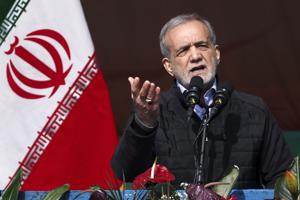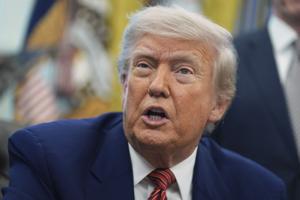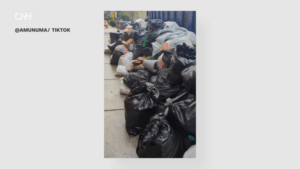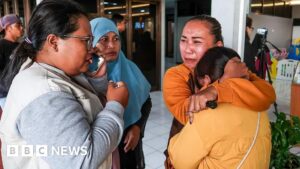
DUBAI, United Arab Emirates (AP) — In a significant escalation of tensions, Iran’s President has ordered the suspension of cooperation with the International Atomic Energy Agency (IAEA) following recent airstrikes by the United States and Israel on its key nuclear facilities. The directive, announced on Wednesday, is expected to severely hinder the IAEA’s ability to monitor Iran’s nuclear activities, raising global concerns over nuclear proliferation.
The decision comes in the wake of coordinated airstrikes that targeted Iran’s most crucial nuclear sites. These strikes have intensified the already fraught relations between Iran and Western nations, particularly the U.S. and Israel, who have long been wary of Iran’s nuclear ambitions. The suspension of cooperation with the IAEA marks a pivotal moment in the ongoing geopolitical struggle over Iran’s nuclear program.
Background on Iran’s Nuclear Program
Iran’s nuclear program has been a focal point of international diplomacy for decades. The 2015 Joint Comprehensive Plan of Action (JCPOA), commonly known as the Iran nuclear deal, was a landmark agreement aimed at curbing Iran’s nuclear capabilities in exchange for the lifting of economic sanctions. However, the U.S. withdrawal from the deal in 2018 under the Trump administration reignited tensions, leading to a gradual unraveling of the agreement.
Since then, Iran has progressively scaled back its compliance with the JCPOA, enriching uranium beyond the limits set by the deal. The IAEA has played a critical role in monitoring Iran’s nuclear activities, providing the international community with crucial insights into the country’s compliance. The recent suspension of cooperation threatens to obscure these efforts, leaving a significant gap in oversight.
International Reactions and Implications
The international community has responded with alarm to Iran’s latest move. The IAEA, headquartered in Vienna, has expressed its concern over the suspension, emphasizing the importance of maintaining dialogue and cooperation.
“The IAEA’s verification and monitoring activities are essential for ensuring transparency and building trust,” said IAEA Director General Rafael Grossi.
The agency has called for renewed diplomatic efforts to address the situation.
Meanwhile, the United States and Israel have defended their actions, citing the need to prevent Iran from acquiring nuclear weapons. The airstrikes, they argue, were a necessary measure to safeguard regional and global security. However, critics warn that such actions could further destabilize the region and lead to an arms race.
Expert Opinions and Historical Parallels
Experts in international relations and nuclear non-proliferation have weighed in on the potential consequences of Iran’s decision. Dr. Emily Landau, a senior research fellow at the Institute for National Security Studies, highlighted the risks of reduced transparency.
“Without the IAEA’s oversight, the world is left in the dark about Iran’s nuclear activities, which could lead to miscalculations and heightened tensions,” she noted.
Historically, similar situations have led to prolonged standoffs and diplomatic crises. The North Korean nuclear issue serves as a cautionary tale, where the lack of international oversight has resulted in a more volatile security environment. The current situation with Iran could follow a similar trajectory if diplomatic efforts fail to resolve the impasse.
Looking Ahead: The Path to Resolution
The path forward remains uncertain, as diplomatic channels work to de-escalate the situation. The European Union, a key player in the original JCPOA negotiations, has called for an emergency meeting to discuss potential solutions. There is a growing consensus among international stakeholders that dialogue and negotiation are crucial to preventing further escalation.
As the world watches closely, the need for a balanced approach that addresses security concerns while promoting diplomatic engagement is more critical than ever. The coming weeks will be pivotal in determining whether Iran and the international community can find common ground to avert a deeper crisis.
The unfolding developments underscore the complexity of nuclear diplomacy and the delicate balance required to maintain global security. As the situation evolves, the international community must remain vigilant and committed to finding peaceful solutions.






